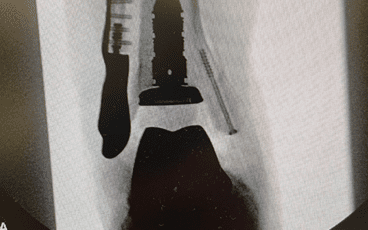A podiatrist (DPM), also frequently referred to as a “foot doctor”, is a physician that is educated and experienced in diagnosing, treating and surgically repairing disorders and problems of the foot, ankle and lower extremity. A certified podiatrist will complete at least 7 years of training. This training includes podiatric medical school and is then followed by a few years of residency training at a hospital.
What are the responsibilities of a podiatrist?
Like most physicians, a podiatrist may see a variety of situations on any given day within the practice. For instance, if an athlete sprains an ankle or fractures his foot, a podiatrist can provide the medical expertise to properly diagnose and treat the injury.
Podiatrist also treat foot disorders like corns and calluses, bunions and ingrown toenails. Essentially, any injury, infection or disorder of the foot or ankle a podiatrist may treat on a day-to-day basis.
Here are some common conditions and disorders a podiatrist treats:
- Sprains and fractures
- Plantar fasciitis
- Flat feet
- Hammer toes
- Foot or toenail fungus
- Infections
- Diabetic ulcers
Podiatrist treat many conditions, but sometimes will choose to specialize in a specific area.
Podiatric Specialties
A podiatrist is already an expert in taking care of conditions in the lower extremity. However, some podiatrist prefer to focus on one area of foot, leg, or ankle. This allows patients with specific disabilities to see a doctor who concretes entirely on that area within the practice.
Some of these specialties may include: sports medicine (sports injuries), reconstructive foot and/or ankle surgery, oncologist studies (cancer specialists), podopaediatrics (children or infant foot and ankle conditions), and diabetic limb care.
When should I seek treatment from a podiatrist?
If you are experiencing any pain, it’s always best to consult with your physician immediately. Your physician may be able to diagnose and treat your injury or she may refer you to a podiatrist. It’s important to remember that your feet bear the weight of your entire body and are usually under extreme abuse throughout the day. Playing sports, walking, standing or in some cases wearing shoes may all stress the foot. Unfortunately, many people neglect foot care as common practice and conditions and injuries can arise.
Preventive foot care can help you avoid unnecessary pain or in some cases more serious conditions. Preventive foot care is even more important if you’ve previously had foot issues or have certain medical condition like diabetes.
Move Better Live Better with a Podiatrist at IBJI
If you have any questions or would like to find an expert podiatrist in the Chicago area, the Illinois Bone and Joint Institute has multiple locations and an extensive network of orthopedic services.




